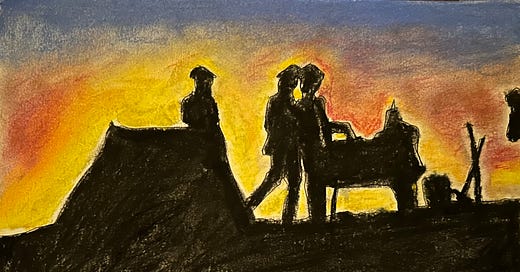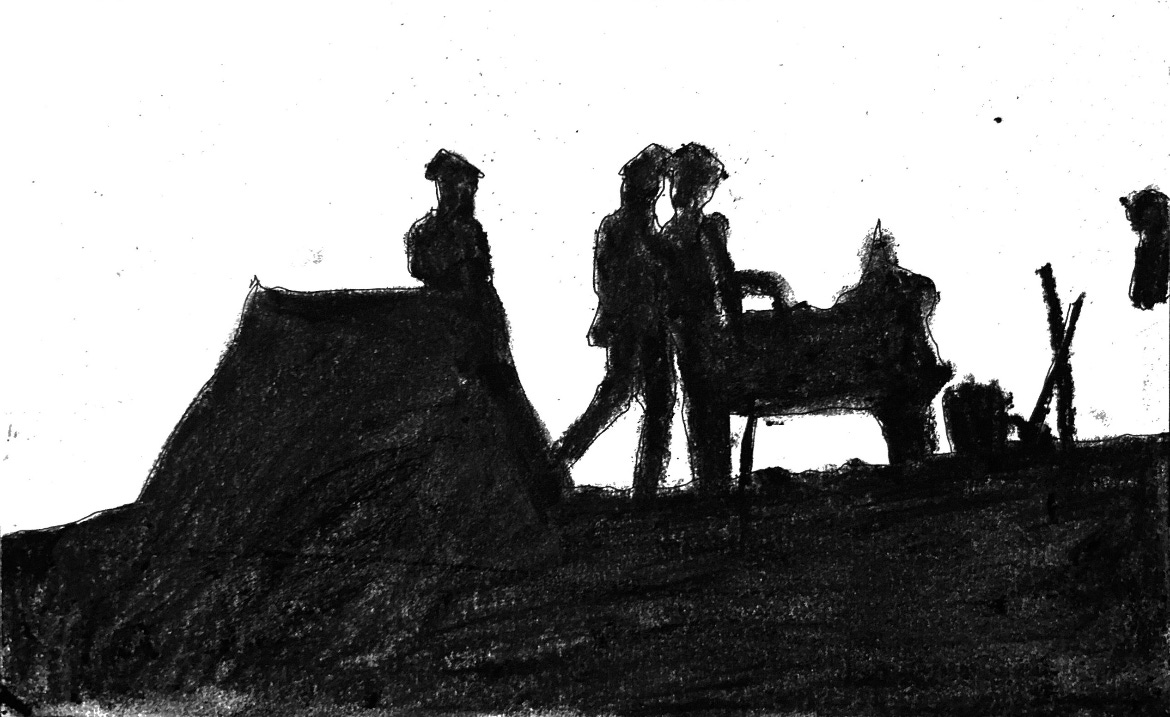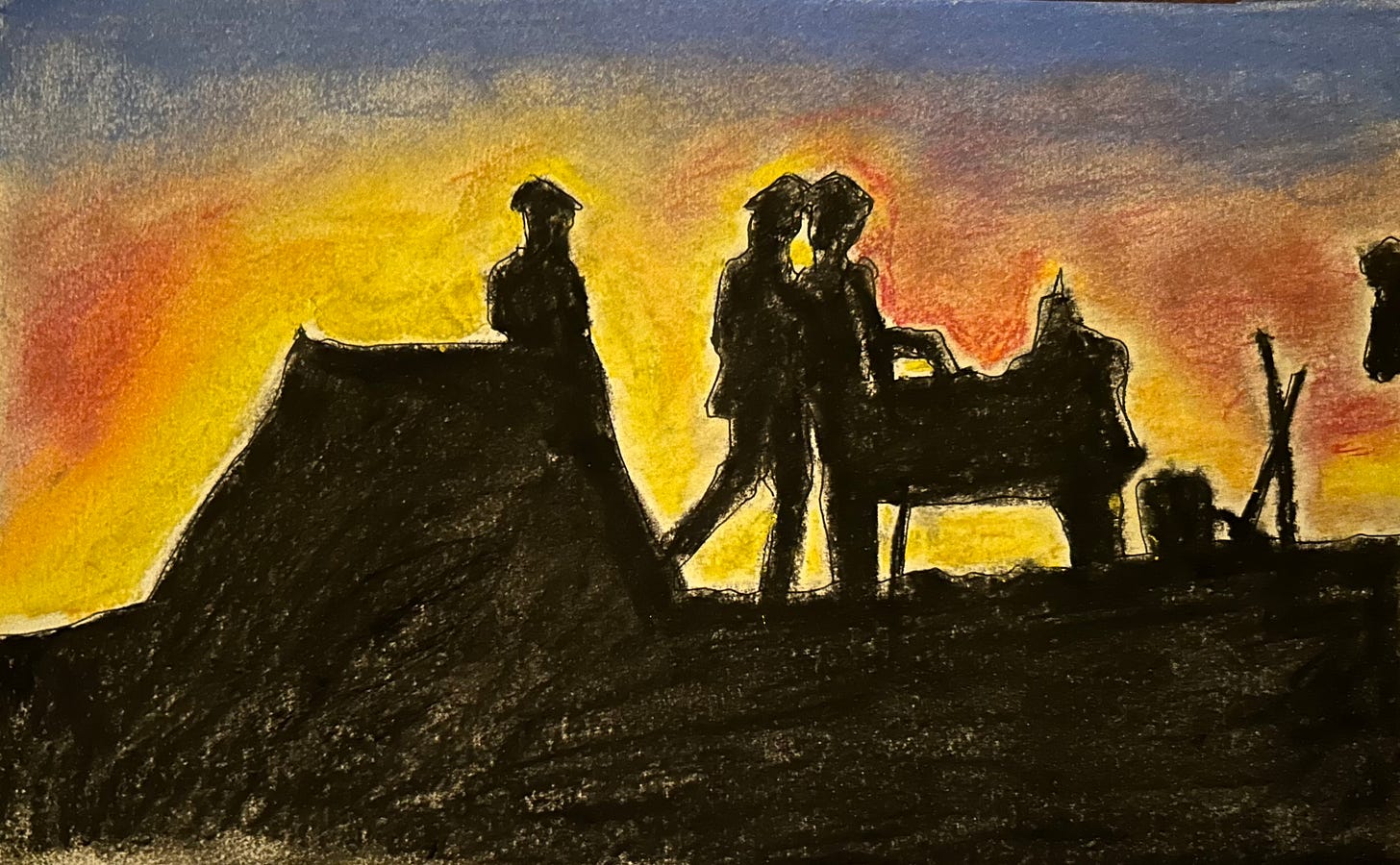The nature of a good book is that it will lead you to another book, another author, another subject you’d never before considered. Often your greatest interests come from a very superficial place.
Three summers ago I read a play by John Patrick Shanley called Prodigal Son because Timothée Chalamet was in the original cast. Silly, I know. But I ended up loving the play and using it as a reading list: the protagonist was reading the poems of Siegfried Sassoon, a prominent Great War poet, and so I decided to read a bit of his poetry.
After a few days, I had read every poem he’d ever written and was working to assemble my own collection of his work, typed by typewriter and bound in green board like a military dossier. My mom was charmed by my odd pursuit and recommended I read Pat Barker’s fictional account of Sassoon in the Regeneration trilogy—the three best books ever written about neurasthenic war poets.
Since then, I’ve gone on to read many books about the Great War, both fiction and non-fiction: The Great War and Modern Memory by Paul Fussell, Good-bye To All That by Robert Graves, Parade’s End by Ford Madox Ford, Testament of Youth by Vera Brittain, Seven Pillars of Wisdom by T.E. Lawrence, A Month in the Country by J.L. Carr, Memoirs of an Infantry Officer by Siegfried Sassoon, The Waste Land by T. S. Eliot, In Parenthesis by David Jones, Observe the Sons of Ulster Marching Towards the Somme by Frank McGuinness, Journey’s End by R.C. Sherriff, Tolkien and the Great War by John Garth, The Guns of August by Barbara Tuchman, Wilfred Owen by Jon Stallworthy, The Generation of 1914 by Robert Wohl, and more poems than it would be advisable to list; to watch the harrowing scenes immortalized by film and television: Lawrence of Arabia (1962), Parade’s End (2012), Tolkien (2019), 1917 (2019), Benediction (2022), Journey’s End (2018), Paths of Glory (1957), The Trench (1999), They Shall Not Grow Old (2018).
But what compelled me about these disturbing accounts of a war that was by all views unjustifiable? No war before or since has been fought by soldiers among whom it was common to be trained in the Classics, Latin and Greek, as well as the long tradition of English verse. The “instinctive and unapologetic” British intercourse with literature, combined with a new sense of accessibility to great books, kindled the personal literary fires of soldiers fighting in the Great War. Ultimately, the starkest contrast the Great War poets explore is the difference between idyllic or unspoiled pastoral life and the suddenness, the ugliness of death.
The rich literary tradition in their heads helped the soldiers survive and make sense of the war, but in a strange way it also robbed them of an audience who could understand their actual experiences. Having pastoral visions in their minds, on their lips, while they faced bloody horrors, created a remarkable new form of poetry.
While this pursuit might have started in a foolish place, the combination and order in which I leapt from text to text—each about war, poetry, language, history, and the nature of fiction—was intellectually compelling and has formed a great part of my life for the past few years. At the end of the day I long to read my books—I get antsy if I don’t have a morsel of Graves or Fussell or Ford every so often. And when I am not reading these books I am thinking about them, employing their ideas and characters in my decisions and language, and using the text to inform the educational choices I make. Once you read a book wholeheartedly you’re never really through with it and it is never through with you.





